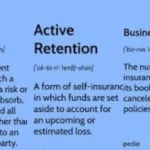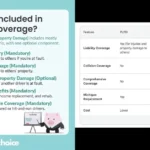Breaking up with someone is one of the most challenging and emotional experiences in life. Ending a relationship, whether it has been short-lived or long-standing, requires sensitivity, empathy, and a clear understanding of your own needs and the impact on the other person. Here’s a comprehensive guide to help navigate this difficult process in a way that is compassionate, respectful, and considerate.
Introduction
Breaking up is rarely a simple, one-size-fits-all experience. Every relationship is unique, so the reasons for ending things can range from personal growth to incompatibility, trust issues, or simply falling out of love. While there is no perfect way to end a relationship, approaching the situation with honesty and respect can help ease the emotional toll on both parties. This guide provides a step-by-step approach to breaking up with someone, covering aspects such as preparation, timing, communication, and self-care afterward.
Preparing for the Breakup
Preparation is crucial for an emotionally charged event like a breakup. Taking the time to think through your reasons, what you want to say, and how you plan to handle the aftermath can make the process smoother.
1. Understand Why You Want to Break Up
The first step in preparing for a breakup is to understand why you want to end the relationship. Take some time to reflect on your feelings and thoughts. Are there specific behaviors or incidents that led you to this decision? Have you tried to address these issues with your partner before deciding to break up? Make sure your reasons are clear in your mind so you can communicate them honestly.
2. Consider the Other Person’s Feelings
Empathy is key when ending a relationship. Think about how your partner may react and how they might feel about the breakup. This consideration helps you prepare for different responses and allows you to approach the conversation with sensitivity. Understanding their perspective also helps you craft a message that is both respectful and compassionate.
3. Choose the Right Time and Place
Timing is an important factor in the breakup conversation. Avoid breaking up during high-stress times for your partner, such as just before a big event or in the middle of a crisis. Likewise, the location is essential. Choosing a quiet, private setting can make it easier to have an open and honest conversation without interruptions.
Having the Conversation
When you’ve prepared yourself mentally and chosen the right time and place, it’s time to approach the conversation. This can be difficult, especially if there are strong emotions on both sides. However, being honest, direct, and respectful can help make the process less painful.
1. Start with Honesty and Clarity
Be upfront about your feelings. Start the conversation by expressing that this is difficult for you and that you value the relationship. Then, get to the point gently but clearly. For example, you might say, “I’ve thought a lot about us, and I feel like we’re not right for each other anymore.”
2. Be Kind, but Firm
While it’s essential to be kind, avoid giving false hope. Mixed messages can prolong the pain and confusion. Let them know that your decision is final and that it’s best for both of you. This clarity helps both of you move on.
3. Take Responsibility for Your Feelings
Avoid placing all the blame on your partner. Use “I” statements to express your perspective, such as “I feel like we’ve grown apart” or “I think our needs are different.” This approach can help avoid defensiveness and keeps the focus on why the relationship isn’t working for you, rather than attacking their character.
4. Listen to Their Response
Give your partner the space to express their feelings and ask questions. Listening shows that you respect them and their emotions. Respond honestly but calmly, even if their reaction is emotional or angry. Let them know that you understand their feelings, but reaffirm your decision if they try to convince you otherwise.
5. Avoid Arguments and Blame
Breaking up can bring up strong emotions, which may lead to arguments or blame-shifting. Try to stay calm and resist the urge to engage in an argument. Instead, acknowledge their feelings and keep the conversation focused on the decision to part ways respectfully.
After the Breakup
Once the conversation is over, there are additional steps you can take to ensure that both you and your ex-partner can move forward healthily.
1. Give Each Other Space
After a breakup, it’s essential to give each other time and space to process the end of the relationship. Avoid trying to immediately “be friends,” as this can create confusion and prevent both of you from moving on. Taking a break from communication can allow both parties to heal.
2. Reflect on the Relationship
After some time has passed, reflect on what you learned from the relationship. Think about what worked, what didn’t, and what you want in future relationships. Self-reflection can help you grow and make better choices in the future.
3. Focus on Self-Care
The end of a relationship can be emotionally draining, so prioritize your well-being. Engage in activities that make you happy, spend time with supportive friends and family, and allow yourself to feel any sadness or grief without judgment. Remember that it’s normal to feel a range of emotions after a breakup.
4. Seek Closure
For some, closure is essential for moving on. If you feel it’s necessary, consider writing a letter to your ex-partner (even if you don’t send it) to express any unresolved feelings. This exercise can provide emotional closure and help you process your feelings.
Common Challenges and How to Overcome Them
Breaking up is rarely straightforward, and certain challenges can make it even more complex. Here are some common challenges people face when breaking up, along with tips on how to handle them.
1. The Fear of Being Alone
A significant barrier to ending a relationship is the fear of loneliness. Remember that it’s better to be alone and happy than in an unfulfilling relationship. Embrace the opportunity for personal growth and self-discovery, and remind yourself that being single is not a failure.
2. Dealing with Regret and Second-Guessing
It’s normal to question your decision after the breakup, especially during moments of loneliness. Remind yourself of the reasons you made this choice and trust that you made the best decision for your well-being.
3. Mutual Friends and Social Circles
If you share mutual friends or social circles, it can be tricky to navigate friendships after a breakup. Communicate with friends about your desire for boundaries and ask for their support during this time. Consider attending social events separately if needed, and focus on rebuilding your independence.
4. Moving On
Moving on from a significant relationship takes time, and there’s no set timeline for healing. Avoid rushing into a new relationship or trying to “move on” too quickly. Allow yourself to process the breakup at your own pace and be patient with yourself as you rebuild.
Conclusion
Breaking up with someone is never easy, but with the right approach, it’s possible to part ways respectfully and with compassion. By preparing yourself, choosing the right time and place, and communicating with honesty and kindness, you can navigate this difficult experience with dignity. Remember that while the end of a relationship is painful, it’s also an opportunity for growth and a fresh start. Embrace this new chapter, focus on self-care, and take time to heal. Eventually, you’ll come out of this experience stronger and ready for a brighter future.











